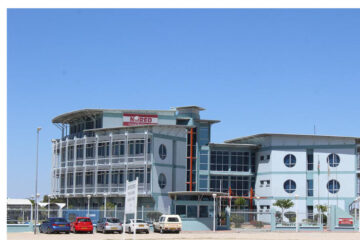This week, a consortium of Namibian journalists wrote an extensive letter of complaint addressed to President Hage Geingob. They are asking for sanctions against Press Secretary Alfredo Hengari. It seems that a breaking point has been reached by those who sent the letter. They feel that they can no longer tolerate Hengari’s perceived snubs, prevarications, oversights, and high-handedness.
We look at this issue from another angle. We see the legitimate irritation of our media colleagues with the Press Secretary as a part of the usual tug-of-war between the media and the president’s media coordinator.
We support the journalists’ right to criticise Hengari. We also acknowledge Hengari’s right to be critical of the media. The Press Secretary’s job involves ensuring the logistics and administration of media relations. But, he must never attempt to censor the news written about the President. The Head of State is an intelligent, educated man who is a seasoned, elder statesman. He does not need a media body guard.
This president has taken the important step of opening up to the media to a greater degree than his predecessors. This is largely due to the meteoric rise of social media. Prior presidents did not have to manage the reality of Facebook live streaming or reporters using individual gadgets to take and post videos. But, increased access to the media can be a double-edged sword.
We in the media know full well that to get a scoop, lead story or unique information, we’d stampede the President relentlessly. We will never appreciate the person placing barriers to pursuing what we believe to be ‘our right’ to get ‘the story.’ The Press Secretary is in the crosshairs because of this. When Hengari enforces parameters, we will complain about attacks on media freedom.
The Press Secretary’s working relationship with the media is a duel responsibility. There is a natural push-and-pull, with no ill-intent or malevolence intended on either side. Sometimes he gets it wrong and sometimes we do.
The WhatsApp Group that is referred to in the reporters’ letter is often difficult to follow. It can be full of insensitive accusations and flippant quips. Often there are veiled insults directed at Hengari, the president and to other members of the group. Such public forums set the tone. Media institutions need to be mature in our approach to covering the news and interacting with newsmakers.
We cannot deny that Hengari has morphed in his role as Press Secretary to be a defender of Geingob. He has moved from being only an information flow/access manager at State House. There have been unqualified, sustained attacks on Geingob that have motivated that change. Rightly or wrongly, there is a perception that media houses look for the slightest slip-up or opportunity to take a verbal swing at the Head of State. Hengari reacts to what he perceives as a negative media siege against the president.
At times, Hengari, who can be overly pedagogic in his interactions. He has walked too close to the line of censorship and has been high-handed in dealing with the media. Media practitioners who are skilled and proud professionals may not appreciate his manner in these cases. The letter written may be a reflection of this.
Balanced reporting speaks to integrity. As we in the media know well, can be many sides to a story. In news articles, our duty is to present different angles and allow the reader to make their own conclusions. To that end, we encourage the Press Secretary to write more opinion pieces for publication. We may not agree with what he has written. This newspaper, when examining our past editorials, would likely disagree with Hengari most of the time. Nevertheless, the Press Secretary’s voice has a place in the national debate presented to the public.
In another context, the letter of complaint about Hengari is not unusual. The day the Press Secretary is beloved by the media, then he must examine if he is doing his job for the Head of State. It is Hengari’s job to represent the president’s message to the media, not the media’s message to the president. An effective Press Secretary must not blur these roles.



